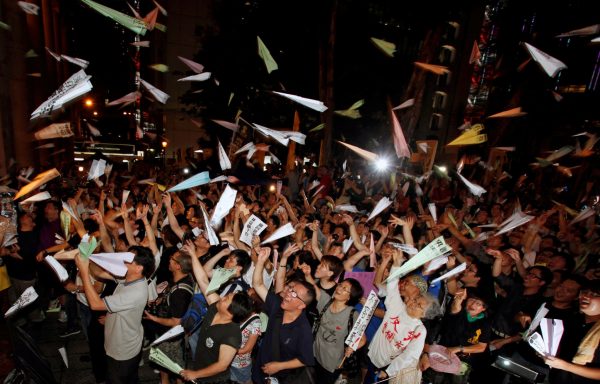One of the major centres of power over which political factions have waged their battles is the legislature. From Beijing’s perspective, its tightening hold over the legislature is necessary to quash pro-independence activism. The central government is highly concerned with the independence movement. It is working with the Hong Kong government to implement national security legislation through the Basic Law to stop secession activities and other developments that could affect national unity.
This push has become even more pronounced with a pro-mainland administration in power in Hong Kong’s government. In November 2016, China’s National People’s Congress (NPC) Standing Committee proactively interpreted the Basic Law (Article 104) to disqualify two localist candidates from joining the legislature. Zhang Dejiang, a high-ranking Chinese official in charge of Hong Kong matters and chairperson of the NPC, declared that Hong Kong’s autonomy must not be used to challenge the central government nor be construed as a power-sharing arrangement.
From the pan-democrats’ and civil-rights groups’ perspectives, this was an intrusion into Hong Kong’s rule of law that sidestepped the territory’s own judicial system. They equate this development with the use of executive judicial power to override the legislature. Political activists with stronger views even question the legitimacy of the Hong Kong administration given it is not elected through genuine universal suffrage. Another point of contention is that the 1997 negotiations for the return of Hong Kong did not include any input from Hong Kong citizens.
The jurisdiction of underground spaces in the terminal of a trans-boundary railway system is another contentious area. Beijing and Hong Kong authorities are currently working out the details for a combined Chinese–Hong Kong customs and immigration counter in the West Kowloon terminal to smooth passage and reduce waiting times.
The Senior Counsel and deputy to the Chinese People’s Political Consultative Conference Alan Hoo argued that it is implied in the Basic Law that underground areas in Hong Kong are policed by the local government on behalf of the central government. And therefore Chinese law enforcement personnel have jurisdiction over those spaces.
But a number of legal experts and practitioners oppose this interpretation and argue that the central government does not have jurisdiction to situate their immigration and custom counters inside Hong Kong under the Basic Law. They are also wary about the larger political implications of reconfiguring the limits of Hong Kong’s autonomy.
There are two parallel socio-political trends emerging in Hong Kong. One involves greater polarisation over issues concerning autonomy, such as those above. This trend has been evolving alongside a growing fringe movement that is calling for ambiguously defined shades of localism, independence, nativism and autonomy. Continuation along these lines will result in greater societal polarisation, political factionalism, policy inertia and maybe even public unrest. But it will also create greater public awareness of differing interpretations of political rights.
In the face of this growing tension, there have been some recent indications of reconciliation between the two sides, starting with Zhang Dejiang’s dialogue with pan-democrats in May 2016. Zhang expressed his interest in listening to various Hong Kong voices and narratives in the post-Occupy era.
The outcome of this intricate negotiation between Beijing’s state priorities and pan-democrat concerns about autonomy will depend on the policies and political skills of the incoming Carrie Lam administration. Lam was elected with 777 of the 1,194 votes from a committee representing different sectors of Hong Kong society. She carries the weight of a difficult task: sustaining the practice of ‘one country, two systems’.
To do so involves avoiding suspicions that she is pro-Beijing, upholding the rule of law and accommodating traditional freedoms in Hong Kong, while at the same time managing Beijing’s concerns about the independence movement and national security. Lam must become an impartial intermediary between Beijing and Hong Kong to effectively represent the sentiments of Hong Kong citizens and show pragmatic results in issues like housing and the management of youth discontent.
Lam famously has many nicknames. She is known as ‘nanny’ in the civil service, ‘good fighter’ by the media and a ‘Beijing puppet’ by her rivals. Perhaps Lam’s multifaceted character is what Hong Kong needs right now to heal its socio-political divisions.
Tai Wei Lim is Adjunct Research Fellow at the National University of Singapore East Asian Institute.

